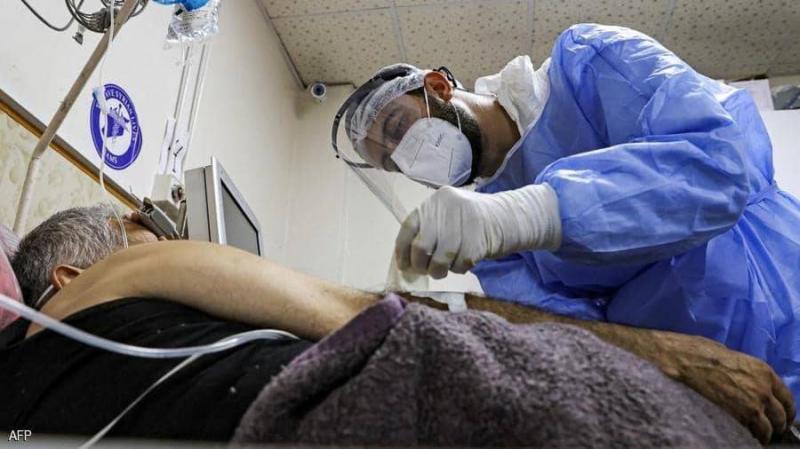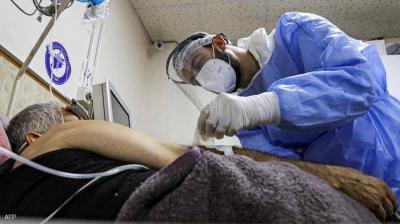Syrian health authorities announced the death of two patients infected with black fungus in the coastal city of Tartus, in western Syria, who were receiving treatment at a hospital. This announcement comes amid an outbreak of black fungus in various regions of the country, especially in the capital, Damascus, where numerous cases have been recorded. Al-Mouwasat Hospital has been designated to receive patients with this disease.
Iskander Ammar, the director of Al-Basel Hospital in Tartus, revealed that the first deceased patient was transferred from a private hospital and treated for COVID-19. He returned to Al-Basel Hospital in poor condition with black fungus infection extending to the brain and was unconscious. He succumbed to neurological complications. The second case was a female patient who arrived in a severe condition, suffering from diabetic acidosis and severe respiratory failure. Her infection extended from the maxillary sinus towards the eye, and she died immediately.
According to the World Health Organization, black fungus is a rare disease that does not spread from person to person and only affects those with severely weakened immune systems. Infection occurs due to exposure to fungi present in the surrounding environment when inhaling microbes, which then can infect the lungs and sinuses, eventually spreading to the brain or eyes.
Syrian health experts attribute the increase in black fungus infections to the widespread outbreak of COVID-19 in the country over the past weeks, with hundreds of new cases being reported daily. Syrian doctor Mohamed Akram stated to Sky News Arabia: "In principle, there is no direct relationship with COVID-19; black fungus is an old disease that has been identified for hundreds of years, and it primarily affects diabetic patients with significantly high glucose levels, as well as those with weakened immune systems. The only connection between COVID-19 and black fungus is that patients infected with the virus, due to their weakened immunity and deterioration from the infection, become easy victims of black fungus."
He added, "The most important step to curb the widespread outbreak of both COVID-19 and black fungus is to vaccinate as many Syrians as possible, while adhering to preventive measures against the virus, such as social distancing and wearing masks, and maintaining personal hygiene, avoiding immunity suppressants without medical supervision for those whose health conditions require it, to prevent an increase in black fungus cases, which are largely linked to COVID-19 infections."
Although the official Syrian statistics regarding COVID-19 infections and deaths indicate over 42,000 cases with about 2,500 deaths, experts question the accuracy of these numbers, believing they do not reflect the significant pandemic spread in the country due to the prevailing circumstances.
In the wake of the announcement of deaths among black fungus patients, there is widespread concern among the Syrian public, especially in Damascus, with many using social media platforms to express their belief that the actual cases far exceed those reported. Adding to the anxiety among Syrians is the deterioration of the healthcare sector due to the war that has been ongoing in the country since 2011.




